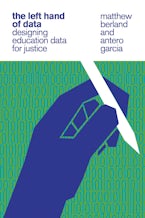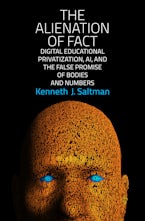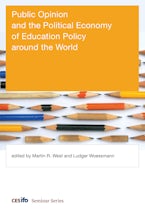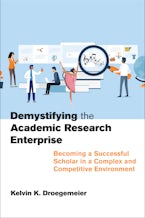“Baldwin is correct: the more open access, the better.”
New York Review of Books, The
“In Athena Unbound, Peter Baldwin offers an admirably pragmatic yet principled approach to the perennial problem of encouraging both the production and distribution of knowledge.”
Paul Romer, Nobel Laureate and University Professor, NYU
“Peter Baldwin's provocative book offers a comprehensive and historically rich account of the complex ecosystem of knowledge creation and dissemination. This book is an elixir that authors, readers, and publishers will relish.”
Pamela Samuelson, Richard M. Sherman Distinguished Professor of Law, Professor of School Information, UC Berkeley; Codirector, Berkeley Center for Law & Technology; Cofounder, Authors Alliance
“By bringing a richly engaging historical perspective to the public right to research, Peter Baldwin weaves, with wit and eloquence, a compelling case for making this right an online reality.”
John Willinsky, author of Copyright's Broken Promise: How to Restore the Law's Ability to Promote the Progress of Science (MIT Press)
"Few people are shaking up the world of scholarly publishing as much as Peter Baldwin. This erudite and historically informed volume is a must-read for those who would know why."
Martin Paul Eve, Birkbeck College, University of London; author of Open Access and the Humanities: Contexts, Controversies, and the Future
“This book provides a masterful scholarly overview of publication trends in the digital age, and a thoughtful analysis of where we may be headed.”
Paul Ginsparg, Professor of Physics and Information Science, Cornell University
For those already well-versed in the open access community, you know that there is an abundance of literature covering the theory, economics, and sociological dimensions of OA. But, it's easy to lose the forest for the trees. Athena Unbound stands out by providing a comprehensive, high-level explanation of how we have reached the current state of open access affairs.
AuthorsAlliance.org
"A historian at UCLA and Global Professor at NYU probes the aim of open access (“a visionary quest whose ultimate ambition is an absolute: All knowledge should be freely available to anyone anywhere”) and the practical and other obstacles that hinder its realization. Important, at a time when institutions are creating ever more intellectual property of immense economic and social value. Practicing what he professes, his book is open access."
Harvard Magazine
"There is a longstanding call to make scholarship free to all, known as the open access movement. Baldwin argues that this time when AI and ChatGPT are reshaping information could be a turning point that speeds up the move to open up scholarship. Baldwin's latest book, Athena Unbound: Why and How Scholarly Knowledge Should Be Free for All, looks at the history and future of the open access movement. And fittingly, his publisher made a version of the book available free online."
EdSurge
"Baldwin (UCLA and NYU) describes the challenges of open access for humanities disciplines and also the possibilities for making scholarship open access. He points to Latin America's success in making the transition to open access through government funding and the SciELO publishing network. He explores what it would take to digitize the public domain and out-of-print books and articles of the world. Baldwin is a professor of history, and his cross-disciplinary knowledge of scholarship in the humanities provides a perspective rarely seen in the literature on open access, a literature often dominated by scholars of the social sciences and so-called hard sciences. He omits insight into the market for scholarly literature that a professional librarian could provide. For example, in his calculations of the amount libraries spend annually on monographs, he uses an NCES “one-time expenditures” figure, which also includes serial back-files and audiovisual purchases, meaning he significantly overestimates the amount academic libraries spend on monographs. However, the book contributes a valuable humanist perspective to the existing understanding of the open-access ecosystem. Baldwin's polished prose marks him as a writer who cares about aesthetics as well as content in composition. Summing Up: Recommended. Graduate students, researchers, faculty, professionals."
Choice
"Athena Unbound: How and Why Scholarly Knowledge Should Be Free To All by UCLA research professor of history Peter Baldwin argues for open access to scholarly knowledge, claiming that while the cost of such expansion is significant, it's within reach if sufficient funds are repurposed. Baldwin covers the history of open access and related concepts like public domain, copyright, intellectual property rights, research funding, and knowledge creation. He discusses how to deal with the thorny differences in scientific research dissemination versus publication in the humanities and social sciences. Well-written, with plenty of wit and insight along the way."
Forbes
“Baldwin supports his assertions about current trends with plenty of evidence. His book contains 68 pages of notes to an amazing variety of sources, and he relies heavily on quantitative arguments, many of them surprising…. The greatest change is the cause that Baldwin defends convincingly throughout his book: open access. … Baldwin makes a strong case that their [humanities and social science scholars'] work, along with that of scientists, should be treated as a public good like clean air and highways… Baldwin is correct: the more open access, the better.”
Robert Darnton
New York Review of Books
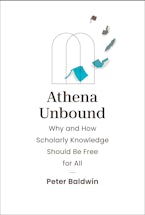

Included in Forbes's Best Higher Education Books of 2023


